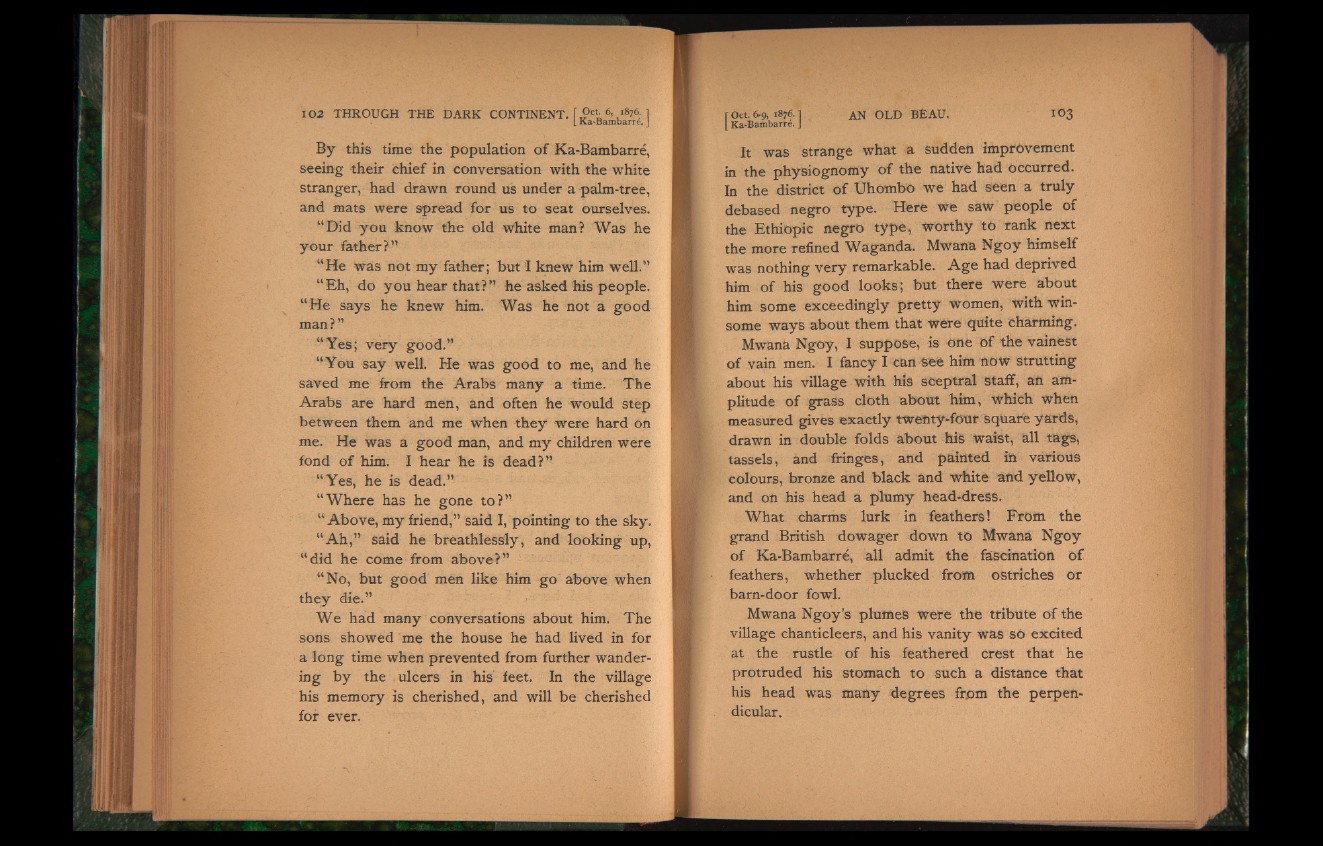
By this time the population of Ka-Bambarre,
seeing their chief in conversation with the white
stranger, had drawn round us under a palm-tree,
and mats were spread for us to seat ourselves.
“Did you know the old white man? Was he
your father?”
“He was not my father; but4 knew him well.”
“Eh, do you hear that?” he asked his people.
“He says he knew him. Was he not a good
man?”
“ Yes; very good.”
“ You say well. He was good to me, and he
saved me from the Arabs many a time. The
Arabs are hard men, and often he would step
between them and me when they were hard on
me. He was a good man, and my children were
fond of him. I hear he is dead?”
“ Yes, he is dead.”
“Where has he gone to?”
“ Above, my friend,” said I, pointing to the sky.
“Ah,” said he breathlessly, and looking up,
“ did he come from above?”
“ No, but good men like him go above when
they die.”
We had many conversations about him. The
sons showed me the house he had lived in for
a long time when prevented from further wander-
ing by the ulcers in his feet. In the village
his memory is cherished, and will be cherished
for ever.
It was strange what a sudden improvement
in the physiognomy of the native had occurred.
In the district of Uhombo we had seen a truly
debased negro type. Here we saw people of
the Ethiopic negro type, worthy to rank next
the more refined Waganda. Mwana Ngoy himself
was nothing very remarkable. Age had deprived
him of his good looks; but there were about
him some exceedingly pretty women, with winsome
ways about them that were quite charming.
Mwana Ngoy, I suppose, is onfe of the vainest
of vain men. I fancy I can see him now strutting
about his village with his sceptral staff, an amplitude
of grass cloth about him, which when
measured gives exactly twenty-four square yards,
drawn in double folds about his waist, all tags,
tassels, and fringes, and painted in various
colours, bronze and black and white and yellow,
and on his head a plumy head-dress.
What charms lurk in feathers! From the
grand British dowager down to Mwana Ngoy
of Ka-Bambarre, all admit the fascination of
feathers, whether plucked from ostriches or
barn-door fowl.
Mwana Ngoy’s plumes were the tribute of the
village chanticleers, and his vanity was so excited
at the rustle of his feathered crest that he
protruded his stomach to such a distance that
his head was many degrees fr.om the perpendicular.